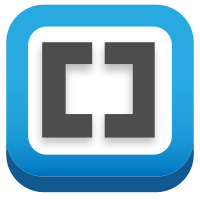[](http://brackets.io/)
Adobe Brackets (once known as Edge) is an Open-Source cross-platform source/text editor for Web development written in HTML, CSS and JavaScript.
Brackets is free and licensed under the MIT License and maintained on GitHub. Currently, Brackets has yet to achieve version 1.0. It gets updates roughly twice a month. Brackets, at the time, is under active development and may have a lot of bugs. Right now, it is at its Sprint 38th build. It offers support for many other non-web programming languages and styling languages like CSS, SCASS, SCSS, SASS, etc. It’s pretty much better than most of its competitors.
Brackets offers a Live File Preview which updates the web-page in question, if any styling changes are made. Brackets has it own plugin store and the extension to the editor is practically limitless. Depending on the use of plugins, Brackets can be customised and made much more powerful.
Installation of Brackets
This process will let you install Brackets on any system that is Debian based including Ubuntu, Linux Mint and any other distribution that is known to accept Debian packages.
1. Download Brackets
There are two editions of Brackets. You’ll have to download the one best suited for your processor architecture. A 32 bit system should use the 32 bit version. 64 bit can use either but the 64 bit version is recommended.
Download the 64 Bit version using the following link.
Brackets 64 Bit.
Or the 32 Bit version using the link below.
Brackets 32 Bit.
2. Install the Brackets package
Your browser will have downloaded the file to the Downloads folder.
Start the Terminal
Do this either by searching for the terminal and running it or from your application menu. OR, you could do it like us by using the keyboard shortcut [Ctrl][ALT][T].
Focus on the right folder
Assuming your package is in the Downloads folder, enter the following command.
cd Downloads
If your package isn’t in that folder, focus on the folder where it is. OR move the file from wherever it is into the Downloads folder and run the command.
Install the package
Enter the following command, sit back and watch as it completes.
sudo dpkg -i brackets-sprint-38*
3. Rejoice
You now have Brackets on your system.
Do let us know how it fares with you. We certainly had a lot of fun editing with it…
